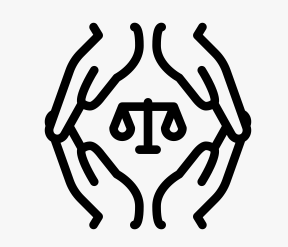
This Code outlines the standards of conduct, ethical behaviour, and professional practice expected of all members of The Institute. It seeks to promote the highest standards of professional behaviour to safeguard the integrity of the financial crime prevention professions.
The Code applies to all members of The Institute, regardless of their role, seniority, or sector of employment. It encapsulates the core values and principles derived from the codes of conduct, ethics and professional practice of regulatory bodies represented in The Institute’s membership base.
MEMBERS OF THE INSTITUTE SHALL:
1. Commitment to Financial Crime Prevention
- Take active steps to detect, report, and prevent financial crime in all professional activities.
- Stay updated with the latest financial crime trends and patterns to effectively counteract them.
- Implement and advocate for robust systems and controls that mitigate financial crimes risks.
- Collaborate with peers, regulatory bodies, and relevant authorities to share information and enhance industry-wide financial crime prevention measures.
2. Honesty and Fairness
- Always act truthfully, avoiding deceptive practices, ensure actions consistently align with spoken commitments.
- Consider the best interests of clients and customers in all decisions.
- Ensure transparency in all their professional interactions.
3. Respect and Equality
- Treat everyone with respect, ensuring they act without prejudice or bias.
- Handle all personal and professional information with care, upholding privacy
- Encourage a workplace environment that respects diverse opinions and backgrounds.
- Always be approachable, promoting open dialogue and communication.
4. Integrity and Professionalism
- Familiarise themselves with and adhere to the standards set by respective regulatory bodies.
- Approach challenges with professionalism.
- Maintain a consistent, ethical approach in all dealings, regardless of challenges.
5. Conflicts of Interest
- Be transparent about potential conflicts, whether personal or business-related.
- Avoid situations where personal interests might compromise their professional role.
- Ensure all decisions are made objectively, free from undue influence.
- Actively seek feedback when making decisions to ensure impartiality.
6. Open Communication
- Take responsibility for actions and admit mistakes when they occur.
- Ensure transparency when addressing issues, avoiding cover-ups or denials.
- Provide colleagues and clients with essential information for their roles.
- Welcome and offer constructive feedback in a thoughtful, respectful manner.
- Promote open dialogue to foster understanding and collaborative solutions.
- Actively listen, ensuring all parties feel heard and understood.
7. Continuous Learning and Development
- Commit to continuous learning and personal growth through training, workshops, and seminars.
- Stay informed of changes in laws, regulations, and industry standards.
- Encourage and support the development of colleagues and team members.
- Seek feedback for self-improvement and acknowledge areas for growth.
8. Represent The Institute Positively
- Uphold The Institute’s reputation through personal and professional actions.
- Report practices or events that might harm The Institute’s standing.
- Engage with the broader community in ways that reflect positively on The Institute.
Members are encourages to interpret and apply the Code in the spirit of upholding the reputation and trustworthiness of the financial crime prevention professions. By adhering to this code, members demonstrate their dedication to upholding the highest standards of conduct and ethics in their professional engagements.
If any member is aware of breaches against the Code, they can contact The Institute Committee at [email protected]
